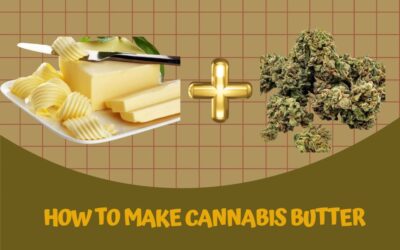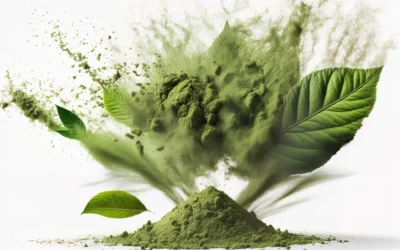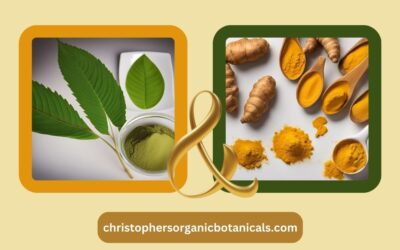Ultimate Guide to Brewing Perfect Kratom Tea: Mastering the Art
People in Southeast Asia have been using Kratom Tea traditionally for thousands of years. In America we use this botanical in hot water like a tea suspension. People use kratom tea for general well being and to stay alert.
People in Southeast Asia make Kratom Tea. Boil fresh leaves in a kettle for a few hours to brew it. Alternatively, people can chew fresh leaves directly from the tree. Once the brewing is complete, we throw out the leaves.
Traditional preparations of Kratom didn’t include the ingestion of the powder itself. Like most Tea preparations the leaves were discarded afterwards. I made fresh brewed tea from leaves and brewed Kratom tea powder in a kettle for hours to see the difference.
There is a difference in the effects of kratom and how it works when using new fresh brew kratom Tea or brewing the powder and discarding the plant material. Not a bad difference but just different. I suggest trying the powder brewed at least once to try it out.
You can simmer the powder on the stovetop for hours for even stronger effects. I have heard of people even reusing the powder after they simmered it, but that seems a bit messy. Just brew it if possible, on a low heat such as 160-degree Fahrenheit for a few hours to enhance strength.
Kratom tea is a popular traditional method of consuming mitragyna speciosa, a tropical evergreen tree native to Southeast Asia. The leaves of the mitragyna speciosa tree contain alkaloids, such as mitragynine, which is responsible for its potential effects.
To make kratom tea, steep crushed kratom leaves or powder in hot water, just like you would prepare traditional teas.
How to Brew Kratom Tea
Here’s a general process for making kratom tea:
- Boil Water: Bring water to a boil. The amount of water will depend on how much tea you plan to make and the strength you prefer. It’s common to use around 1 to 2 cups of water per serving.
- Add Kratom: Once the water is boiling, reduce the heat to a simmer, and add the measured leaves or powder to the water. Stir well to ensure the kratom is evenly distributed.
- Steep the Kratom: Let the kratom steep in the hot water for about 15 to 20 minutes. This allows the alkaloids to be released into the water.
- Strain the Tea: After steeping, strain the tea to remove any plant material, such as kratom leaves or powder. You can use a fine mesh strainer, tea infuser, or a cloth to strain the tea.
- Enjoy: Pour the kratom tea into a cup and enjoy it while it’s still warm. Some people add sweeteners or flavors to enhance the taste, as kratom tea can have a bitter and earthy flavor.
It’s important to note that the effects of kratom tea can vary depending on factors such as the strain used, the dosage, and individual tolerance. Kratom tea is often preferred by those who don’t enjoy the taste of raw powder and find it more palatable in tea form.
As with any herbal consumption, it’s essential to use it responsibly, follow recommended dosages, and be aware of potential side effects and interactions. If you have any specific health concerns or are taking medications, consult with a healthcare professional before using it.
What Will You Need?
I use 1/4 cup Bragg’s apple cider vinegar in the water while brewing. Half gallon of water to ¼ cup vinegar.
Lemon juice is another effective option for breaking down alkaloids. The acidic nature of lemon juice aids in the breakdown process, making it a suitable alternative to vinegar.
While vinegar and lemon juice serve the same purpose, some individuals may prefer the taste of lemon juice over vinegar. Therefore, if you find the taste of vinegar unpleasant, you can opt for lemon juice instead.
Despite personal preferences, it is important to note that both vinegar and lemon juice offer benefits when it comes to breaking down alkaloids. So, even if you choose to skip vinegar or lemon juice due to taste preferences, you may miss out on the advantages they provide.
I used about 4 oz of powder for a half gallon of water for the recipe. The half-gallon will give you a little over a quart usable tea when finished. I simmer on the stovetop for 45 minutes on medium heat until a slow rolling boil occurs. I have an electric stove, so I keep it at 6-7.
I use the strainer that comes with the Magical Butter machine, but you can buy them separately on their website.
Brewed Kratom Tea
The result is a brewed Kratom tea without having to ingest the powder. A bit of residual powder will remain, but there won’t be much after properly straining the tea. I strain the kratom tea twice to remove most of the powder and get it out of the tea.
The breakdown is approximately 3.5 grams of powdered kratom per oz of tea. This is basically a kratom tea reduction at home.
We started with 64 oz plus 2 oz of vinegar for 66 oz total. Reduced to 34 oz divided by 112 grams would give you about 3.5-4 grams per oz. You can adjust the ratio of 3.5 grams to an oz of water to the strength you would like.
A Stronger or weaker Tea reduction would require more or less leaf material. Try it out with 2 oz instead for a weaker version. Some people find it hard to digest the leaf material, so this recipe can help remove the material from your diet.
Click here to see the Brewing Kratom Tea slideshow post for more pics
Just something I wanted to share that recipe with you, and it can help mix up the kratom monotony. It does take some time but is good to have some on hand for that quick out the door boost.
You can even make a refreshing twist to your kratom routine and create a cold brew kratom tea.
Why Brew Kratom Tea?
Brewing kratom tea not only helps eliminate the need to ingest the powder but also results in a more enjoyable consumption experience. The tea offers a milder taste and is often preferred by users who find raw powder difficult to consume.
Experiment with Different Brewing Methods
For a stronger brew, try simmering kratom powder for a few hours, or experiment with using vinegar or lemon juice to break down the alkaloids. You can even create a refreshing cold brew for a twist on the traditional hot tea.
Use Kratom Responsibly
As always, it’s essential to use kratom responsibly. Consult with a healthcare professional if you have any health concerns or are on medication to ensure safe use.
Conclusion
In conclusion, mastering the art of brewing kratom tea can enhance your experience with this traditional botanical. Whether you prefer using fresh leaves or powder, kratom tea offers a smooth and palatable way to enjoy its potential benefits.
By following the simple steps outlined in this guide and experimenting with different techniques like adding vinegar or lemon juice, you can customize your brew to suit your taste and strength preferences. Remember, brewing kratom tea not only helps eliminate the need to ingest the powder but can also result in a more enjoyable consumption experience. As always, use kratom responsibly, and consult with a healthcare professional if you have any health concerns or are on medication.
Ready to elevate your kratom routine? Try brewing your perfect cup of kratom tea today!






You mentioned that the alkaloids break down in the presence of acids, which was a bit of a concern. Heat and acids do break them down but pretty slowly. There is a decent article in Analytical Toxicology, “Temperature and pH-Dependent Stability of Mitragyna Alkaloids” at
https://academic.oup.com/jat/article/44/4/314/5693674
There is also a recent but pretty dense (i.e. geeky) article in Frontiers in Pharmacology, “Kratom Alkaloids: Interactions With Enzymes, Receptors, and Cellular Barriers”
https://www.ncbi.nlm.nih.gov/pmc/articles/PMC8637859/
cheers,